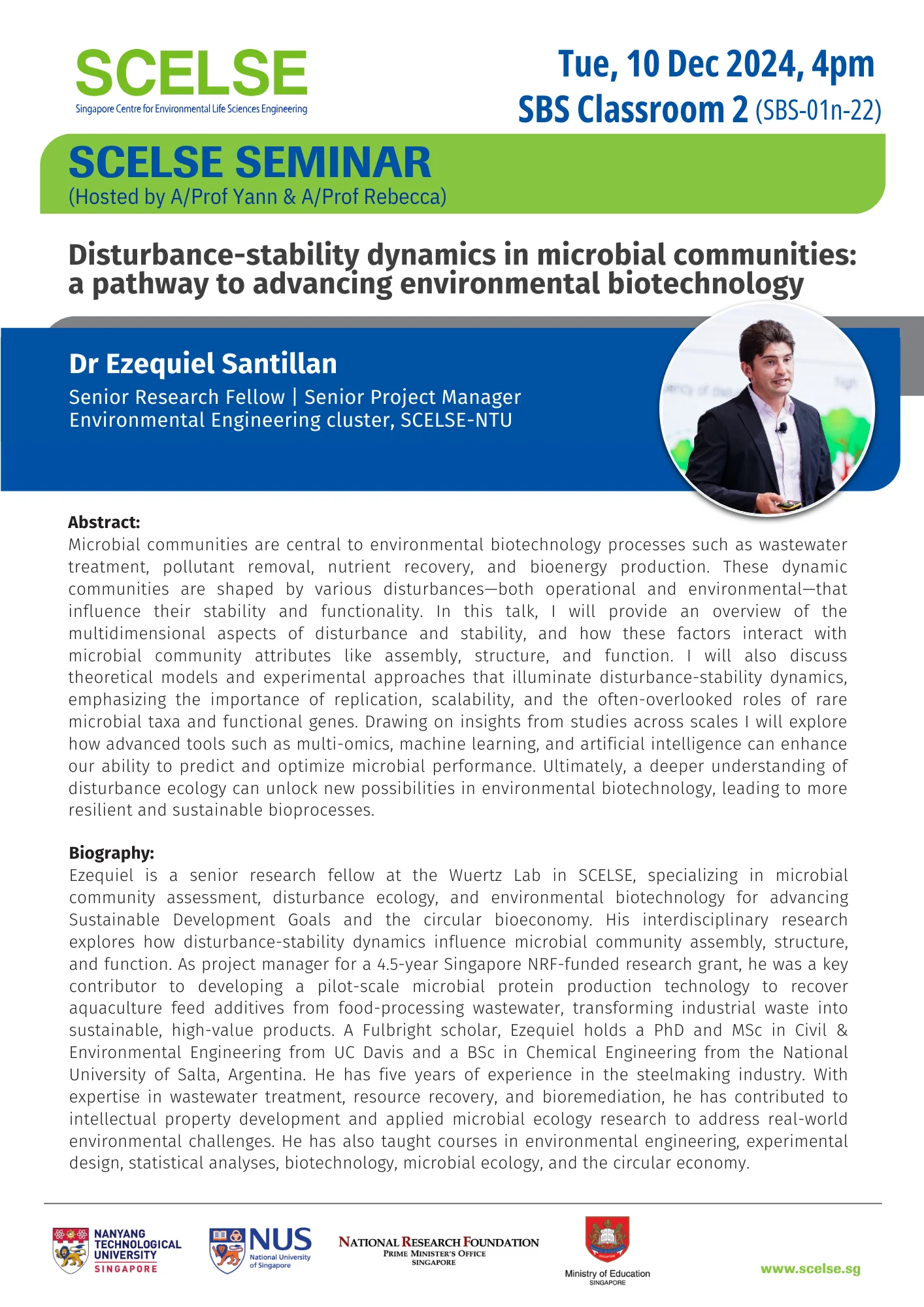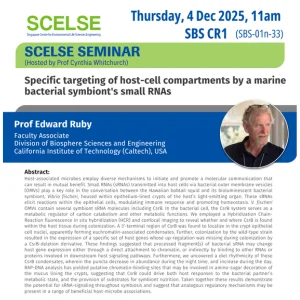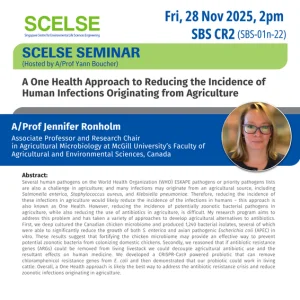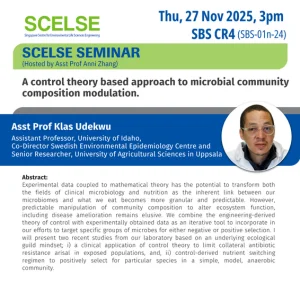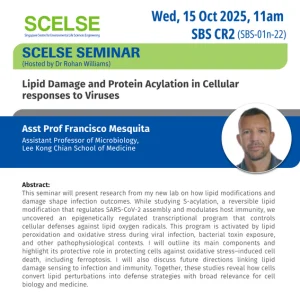Disturbance-stability dynamics in microbial communities: a pathway to advancing environmental biotechnology
Time: 4pm – 5pm
Venue: NTU School of Biological Sciences Classroom 2 (SBS-01N-22)
Microbial communities are central to environmental biotechnology processes such as wastewater treatment, pollutant removal, nutrient recovery, and bioenergy production. These dynamic communities are shaped by various disturbances-both operational and environmental-that influence their stability and functionality. In this talk, I will provide an overview of the multidimensional aspects of disturbance and stability, and how these factors interact with microbial community attributes like assembly, structure, and function. I will also discuss theoretical models and experimental approaches that illuminate disturbance-stability dynamics, emphasizing the importance of replication, scalability, and the often-overlooked roles of rare microbial taxa and functional genes. Drawing on insights from studies across scales I will explore how advanced tools such as multi-omics, machine learning, and artificial intelligence can enhance our ability to predict and optimize microbial performance. Ultimately, a deeper understanding of disturbance ecology can unlock new possibilities in environmental biotechnology, leading to more resilient and sustainable bioprocesses.
Speaker:
Dr Ezequiel Santillan
Senior Research Fellow | Senior Project Manager
Environmental Engineering cluster, SCELSE-NTU
Biography:
Ezequiel is a senior research fellow at the Wuertz Lab in SCELSE, specializing in microbial community assessment, disturbance ecology, and environmental biotechnology for advancing Sustainable Development Goals and the circular bioeconomy. His interdisciplinary research explores how disturbance-stability dynamics influence microbial community assembly, structure, and function. As project manager for a 4.5-year Singapore NRF-funded research grant, he was a key contributor to developing a pilot-scale microbial protein production technology to recover aquaculture feed additives from food-processing wastewater, transforming industrial waste into sustainable, high-value products. A Fulbright scholar, Ezequiel holds a PhD and MSc in Civil 8 Environmental Engineering from UC Davis and a BSc in Chemical Engineering from the National University of Salta, Argentina. He has five years of experience in the steelmaking industry. With expertise in wastewater treatment, resource recovery, and bioremediation, he has contributed to intellectual property development and applied microbial ecology research to address real-world environmental challenges. He has also taught courses in environmental engineering, experimental design, statistical analyses, biotechnology, microbial ecology, and the circular economy.
